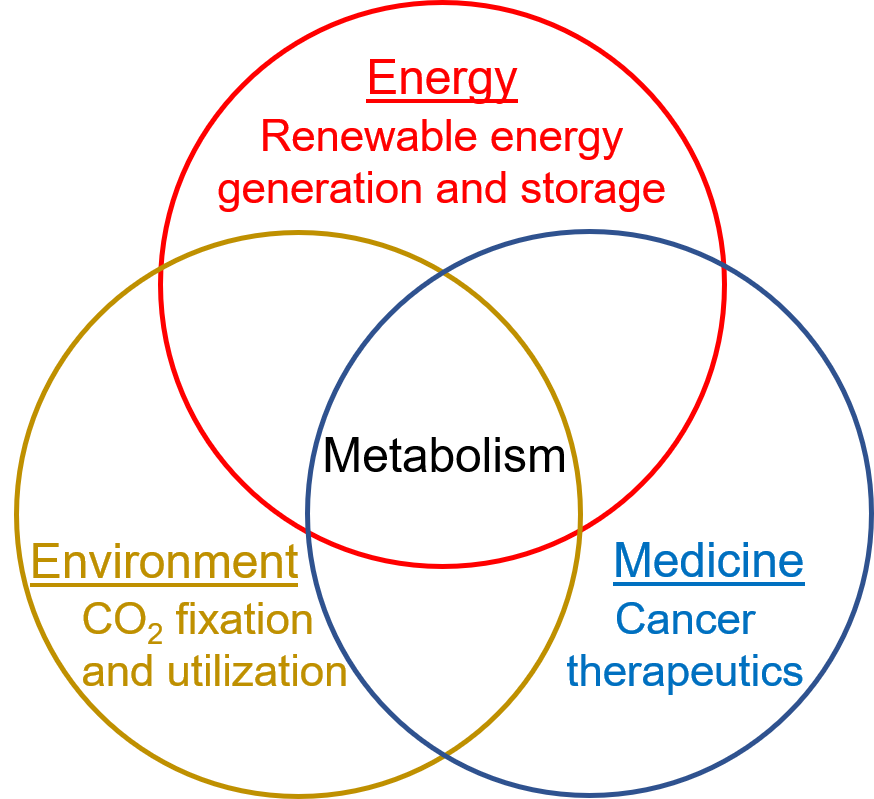Research
From integrative metabolomics to understanding human diseases and enhancing carbon utilization
 A growing concern for 21st-century humanity is the irrevocable rise of carbon dioxide (CO2). On a more personal level, many individuals today suffer from distressing diseases like cancer. Potential solutions to these disparate problems lie in metabolism. With these applications in mind, our research goal is to advance biotechnology and medicine by integrative metabolomics.
A growing concern for 21st-century humanity is the irrevocable rise of carbon dioxide (CO2). On a more personal level, many individuals today suffer from distressing diseases like cancer. Potential solutions to these disparate problems lie in metabolism. With these applications in mind, our research goal is to advance biotechnology and medicine by integrative metabolomics.
At the intersection of energy, environment, and medicine, our research integrates various technologies from analytical chemistry, systems biology, and chemical engineering. We employ stable isotope tracing and mass spectrometry technologies to quantify metabolic activities. Overlaid with kinetic and thermodynamic information, our knowledge of metabolism becomes outfitted with predictive modeling.
Using these technologies, we have innovated a framework to integrate in vivo metabolite concentrations with metabolic reaction fluxes via Gibbs free energy. The upshot of the integrative analysis is internally consistent, comprehensive multi-omic datasets. Based on these results, we found efficient enzyme usage to be a design principle across kingdoms of life.
With such fundamental knowledge, the core technologies and integrative framework developed in our lab enable identification of control knobs for tuning metabolic pathways, for example, to selectively target cancer metabolism.
Similarly, we apply these tools to systematically optimize sustainable bioprocesses. We are particularly interested in converting greenhouse gases (CO2 and CH4) and renewable feedstocks into useful products including fuels.
We also aim to broadly apply our integrative metabolomic approaches. Collaborating with researchers in various fields, we have contributed to elucidating the underlying metabolic processes in bacterial persistence and in healthy embryonic development. The resulting knowledge pointed to potential drug targets in bacteria with high antibiotic tolerance and to an essential metabolic regulation that ensures normal development.
Our integrative research efforts will help disentangle complex metabolic diseases and engineering challenges, thereby facilitating better therapeutic and engineering solutions.